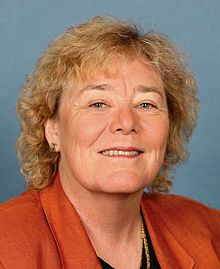 Members of the House Judiciary Committee have brought up concerns that SOPA will undermine the security and functioning of the internet in their opening statements at today’s markup of the bill. They also cautioned against rushing to complete the bill before understanding all of its implications.
Members of the House Judiciary Committee have brought up concerns that SOPA will undermine the security and functioning of the internet in their opening statements at today’s markup of the bill. They also cautioned against rushing to complete the bill before understanding all of its implications.
[The markup is being streamed at http://www.keepthewebopen.com/sopa]
Rep. Lofgren said it is possible to go after lawbreakers without threatening the structure of the internet itself, noting that Congress has never tried to monitor snail mail or filter telephone service, though both are used for illegal activity. She cited the concerns of internet security experts that SOPA will harm DNSSEC, and cited a recent article by Stuart Baker opposing SOPA and the Managers Amendment.
Rep. Sensenbrenner said he is troubled that none of the witnesses at last month’s hearing had the expertise to discuss the effect SOPA would have on the DNS system, and said that for this reason, the legislation is “not ready for prime time.”
Rep. Chaffetz believes that SOPA has been improved by the introduction of the Managers Amendment, but it is still flawed. He says that Congress is “going to do surgery on the internet, but we haven’t brought in a doctor.” Members of the Committee do not fully understand what they are doing – he told the other Members
of the Committee that “if you don’t know what DNSSEC is, you don’t know what you’re doing.” He recommended bringing technical experts in to testify before the Committee.
Rep. Waters said she supports the bill, but she finds it imperfect and still has concerns over the DNS blocking portions of it.
Rep. Lungren seemed clearly frustrated that the bill is quickly passing through the committee. He believes SOPA has “major defects” and the Committee has not had the benefit of technical experts coming in and testifying. From what he has heard, technical experts without a direct stake in the legislation say SOPA will interfere with the functioning of the internet. This may or may not be correct, but he does not want the committee to move forward without exploring the issue further.
Rep. Johnson said thta there are certain technical issues that the Committe can’t ignore. He wondered if the block and redirect provisions will work and if there is a real security threat. He is uncomfortable with the bill because he has not heard anyone respond to the security concerns in a persuasive way. He thinks it is
unwise to make a decision without adequate data to show the Committee it is doing the right thing.
Rep. Issa reiterated that the Committee hasn’t heard from scientists. He noted that piracy is not a new problem, and that there is time to address it. He wants the Committee to deliberate further, to take the time to get it right.
Rep. Polis said that he has personal experience running an internet service provider, and as a company that has been the victim of online theft – so he sees the debate from both sides. However, SOPA in its current form is analogous to a “Balkanization of the internet” He noted that selective enforcement of copyright online has been used as a political weapon in Russia, and that there is “another internet” in Iran due to blocking.




